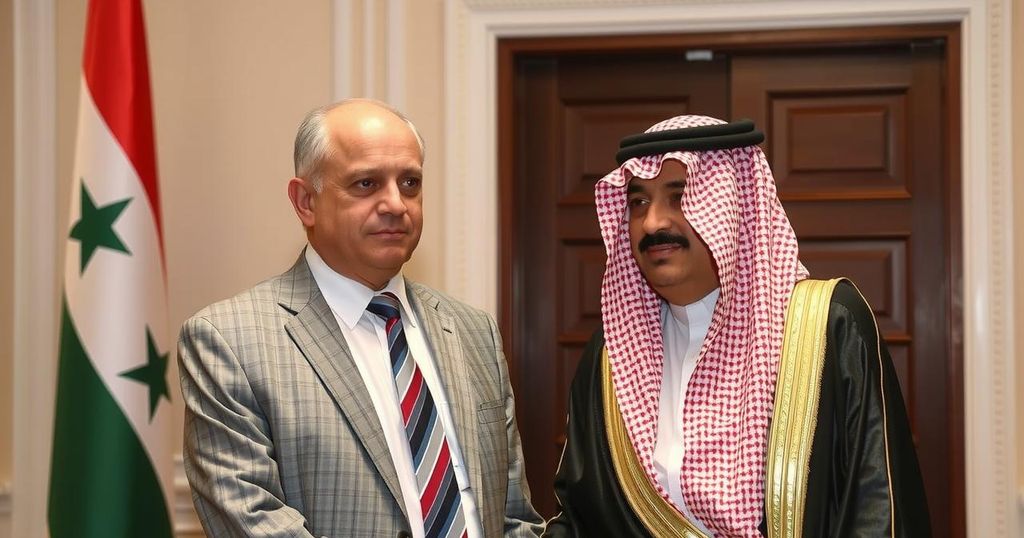The newly appointed Syrian Foreign Minister Asaad al-Shaibani visited the UAE for the first time since President Assad’s downfall last month. Accompanied by senior officials, he seeks to establish constructive relations despite the UAE’s concerns regarding Syria’s new Islamist-aligned leadership and potential Turkish influence. The UAE’s historical alignment with Assad adds complexity to current diplomatic dynamics in the region.
Syria’s newly appointed Foreign Minister, Asaad al-Shaibani, arrived in the United Arab Emirates (UAE) on Monday for his inaugural visit since the fall of President Bashar al-Assad last month, according to the official news agency, SANA. Accompanied by Defence Minister Murhaf Abu Qasra and Intelligence Chief Anas Khattab, Shaibani expressed his intentions to foster positive bilateral relations. Following their visit to the UAE, the delegation had previously met with officials in Qatar and Saudi Arabia, seeking support and recognition from regional powers. Analysts indicate that the UAE harbors significant skepticism towards Syria’s new leadership, largely due to its apprehensions regarding political Islam and concerns about Turkey’s influence in Syria. In contrast to the Emirati government’s previously supportive stance towards Assad, analysts note that there is hesitance in embracing the new Islamist-aligned authorities. Anwar Gargash, an adviser to the UAE president, commented on this unease by labeling the new rulers’ Islamist affiliations as “quite worrying.” Additionally, the history of the UAE’s foreign policy regarding Syria reveals a past alignment with Assad, emphasizing the complexities of the current geopolitical situation.
The visit of Foreign Minister Asaad al-Shaibani marks a significant moment in the shifting political landscape of Syria following the recent overthrow of President Bashar al-Assad. This change in leadership emerges after over 13 years of civil conflict, wherein Islamist-led rebels gained control of Damascus. The UAE, historically supportive of Assad, now faces a delicate balancing act, influenced by their underlying concerns about Islamic governance and Turkish intervention. Their relationships with neighboring Gulf states, particularly Qatar and Saudi Arabia, contrast sharply with their prior approach toward the Assad regime, showcasing the dynamic nature of Middle Eastern alliances and the ongoing repercussions of Syria’s civil war.
In conclusion, the first visit of Syria’s new Foreign Minister to the UAE represents an uncertain period in the region’s politics, reflecting the tension between newly established leadership and traditional alliances. The skepticism of the UAE towards Syria’s new authorities may influence future diplomatic efforts and shapes the broader strategy of Gulf states in their response to the evolving crisis in Syria. As both the UAE and other regional powers navigate these complex relationships, the outcome remains pivotal for the future governance of Syria and its reintegration into the Arab geopolitical landscape.
Original Source: www.barrons.com






